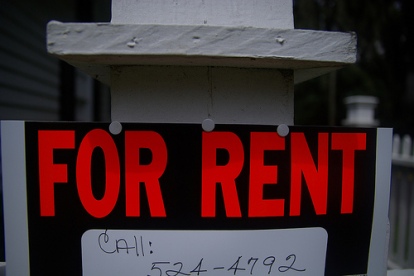Congratulations and Happy Christmas to the New Era residents!
The best news this Christmas?: the New Era tenants have won their high profile battle against Westbrook Partners, the New York property firm that bought up their estate in London in order to put up the rent and get in richer tenants. If they’d succeeded many of the tenants would have ended up homeless. Faced with bad publicity in the season of good will, Westbrook decided to retreat in order to free-ride again elsewhere; so they sold the estate on to the Dolphin Square Foundation, a charity providing low cost housing.
But a few days later, a survey by the National Housing Federation found that more than a quarter of the people in private rental accommodation are having to cut back on food to meet their housing costs, and just under a quarter had cut back on heating. (Guardian 23rd December 2014).
So the problem of using housing as a source of unearned income by renting it out remains, and in cities all over the world, landlords big and small, seek to buy up properties precisely for this purpose, often removing existing tenants in order to raise the rents. Housing simply as property is for living in. Housing as an ‘investment’, a source of unearned income is ‘improperty’, as J.A.Hobson called it.
The usual argument of mainstream economists is that ‘market rents’ should be charged, this being seen a matter of facing up to inevitability (‘you can’t buck the market’, as Margaret Thatcher famously said) – of acknowledging a natural law. And they don’t mean rents that will cover maintenance costs (i.e. fair rents), but rents as high as they can go. Intervening to hold down rents to an affordable level for low and middle income tenants is seen as some kind of inadmissible ‘distortion’ of the market, which by making markets less efficient will damage the economy. For mainstream economics it’s ‘efficient’ to set rents at the going market rate, because then that will balance supply and demand. It may do, but that may mean that those whose incomes are too low to be able to afford them, will end up homeless. ‘Demand’ only counts in free market economics if it’s backed up by money. Allowing land and property to go to the highest bidder is sometimes described as allocating it to ‘the highest and best use’. This is usually justified as allowing the property to be rented (or sold) to whoever is ‘willing’ to pay the most, as when a chainstore outbids some residents for land. But of course, potential tenants differ massively in how much they can afford to pay. What people offer to pay for anything reflects not just how much they want or need it, but their income. Interestingly, economists don’t call these inequalities in purchasing power a ‘distortion’ of the market.
What’s more the market for houses is not like that for cakes. Their supply does not readily adjust to demand, and there are no substitutes for housing as there are for cakes. Housing is a basic need, so its production and distribution should be regulated so that everyone can meet their needs. And that should include state-housing.
Rent is unearned income for the landlord, a private tax on others, and a deadweight cost on the economy. Mainstream economists don’t like to be reminded that landlords “love to reap where they have not sowed”, as Adam Smith said, or that David Ricardo, John Stuart Mill, Karl Marx, Henry George, R.H.Tawney, Michael Hudson and a host of others agree that rental income has no justification, other than power. Recently, a more critical US economist, Joseph Stiglitz, has argued that increasing urban land rents have been a major component in the economic crisis.
So yes, it’s wonderful that the New Era residents have won, but two things still need fixing. At present we have thousands of people on incomes too low to afford adequate housing, and housing costs that include a large element of deadweight costs imposed by private landlords to provide them with unearned income. Until these are resolved, the wider problem underlying the New Era case will remain.


